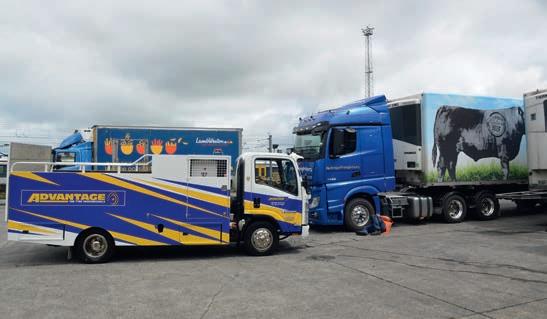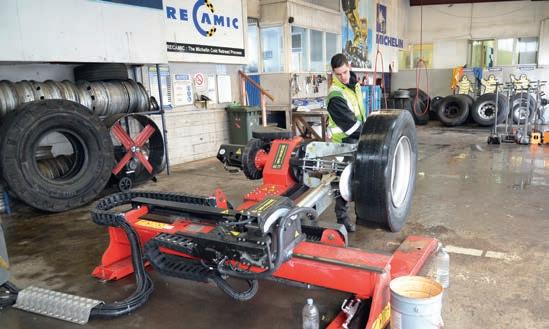
6 minute read
Christchurch charges up
The nine Fuso eCanter’s taking part in the Christchurch trials were launched at the Ruapuna race circuit.
Christchurch
By Brian Cowan
charges up
NINE FUSO ECANTER BATTERY-ELECTRIC TRUCKS HAVE HIT
the streets of Christchurch in a Christchurch City Council-led project to demonstrate what’s possible with the electrification of commercial vehicles.
The project aligns with the Council’s commitment to halve greenhouse gas emissions, from a 2016/17 baseline, by 2030.
The trucks are being run by nine companies and are fitted with a range of bodies suited to various applications. They are leased through TR Group.
The project involves two distinct elements, with the eCanter common to both. One is fairly representative of its type, monitoring the energy use and economics of vehicles covering a modest distance each day in urban civil construction maintenance services work.
The other is more intriguing, in that it is monitoring the viability of possible future emission-free zones covering the delivery of goods and supplies to suburban shopping precincts. It is being run in the Northlands/Northlink complex in Papanui and the recently-developed cluster close to the Christchurch airport.
What makes this second trial unique, says Christchurch City Council resource efficiency manager Kevin Crutchley, who is coordinating the projects, is that it involves the private sector, the shopping property landlords.
“In essence, we’re investigating the potential for future implementation of zero exhaust-emissions delivery zones on their properties.
“Where such zones have been set up overseas, they have been for the most part in the CBDs and administered by the local authorities. In contrast, this is bringing the private sector into the mix.
“It’s exciting to be working with property landlords to investigate the possibility of having zero-emission delivery zones,” Crutchley says.
“What’s impressive is that the shopping complex owners are willing to discuss the possibility of in time setting up such zones, thereby playing a critical role in helping reduce greenhouse gas emissions.”
Four delivery companies have a truck each in the shopping precinct project. They are Bidfood Ltd, Hall’s, PBT Transport Ltd and Toll New Zealand.
The other eCanters are being run by five of the Council’s civil construction and maintenance contractors – CityCare Property, Fulton Hogan Ltd, HEB Construction Ltd, Higgins Contractors Ltd, and Isaac Construction Ltd.
All the nine companies have primary charging points at their depots, but the shopping district project is also investigating the provision of charging facilities at the shopping centres for the delivery vehicles, so they can be receiving a top-up charge while servicing their customers. Depending on load, a typical day’s work for the maintenance group involves more modest distances, generally within the 120-150km range of the eCanter on a full charge.
As Kevin Crutchley explains, part of the shopping precinct project is to look at what easy to use charging infrastructure might be needed when more battery-electric trucks are used for delivery services.
“Private battery-electric cars are normally charged at home,
The Christchurch trials have seen the FUSO eCanter fitted with a variety of body options.
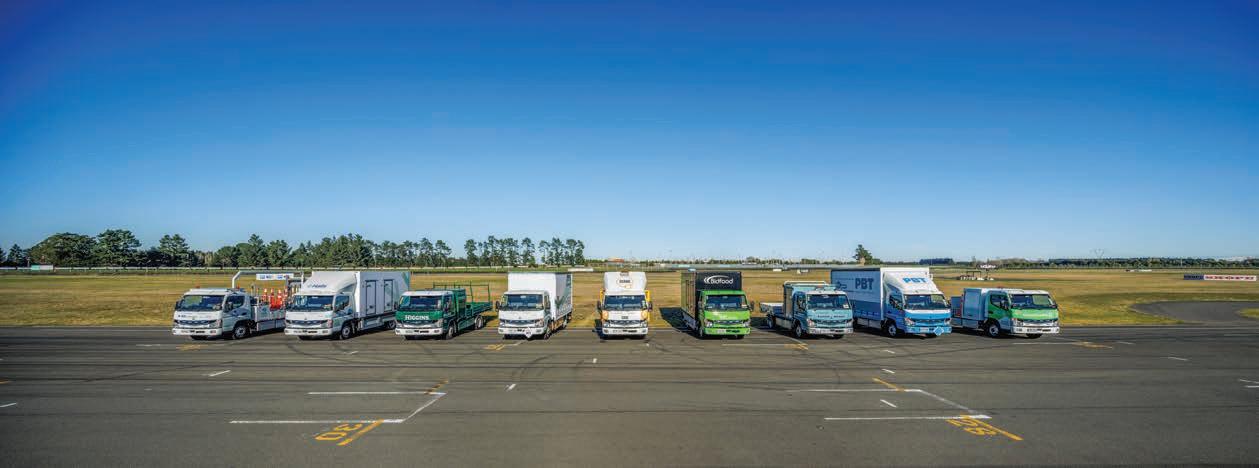
and currently there is also a good, and growing, range of Council and commercially provided public car charging options available in Christchurch.”
He adds that EROAD’s involvement in the projects will provide detailed information on the movements of all the trucks.
“We’re gathering practical lessons from the projects so that truck operators can see how best to use battery-electric truck technology for their work.”
The trucks involved in the projects have been fitted with a variety of application-specific body types. These include chiller bodies for fresh food distribution, curtainsiders for express freight delivery, and a range of flat deck and utility configurations for civil construction, maintenance work and traffic management.
FUSO New Zealand general manager Kevin Smith says it’s a tribute to the eCanter’s versatility.
“The broad range of applications to which these trucks have been put to work demonstrates their adaptability and suitability for emission-free operation across a range of industries,” Smith says.
The model’s electric drivetrain is fitted to a standard 3400mm wheelbase Canter cab/chassis. It features a permanent synchronous electric motor, delivering 135kW and 390Nm and powered by an 81kWh lithium-ion, liquid-cooled battery pack, operating at 420V.
Two-stage regeneration captures energy from the vehicle’s momentum when braking or slowing and returns it to the batteries for future use. A standard CCS2 plug is used for charging, with a DC fast-charge capability able to bring the battery to 80% capacity in 45 minutes and full charge in 80 minutes. The model also comes equipped with an AC charge cable, allowing for a full charge overnight using off-peak power.
The electric model offers the same suite of safety features as the standard Canter. These include active emergency braking, lane departure warning and electronic stability control. The emergency braking uses forward-facing radar to detect the possibility of contact with pedestrians or other vehicles, while a camera mounted on top of the dash monitors lane markings to warn of direction changes that aren’t accompanied by an indicator.
Kevin Crutchley says the information gained from the two projects will assist in reducing greenhouse gas reduction from key transportation sector.
“Some 36% of emissions for the Christchurch district currently come from on-road petrol and diesel use. The
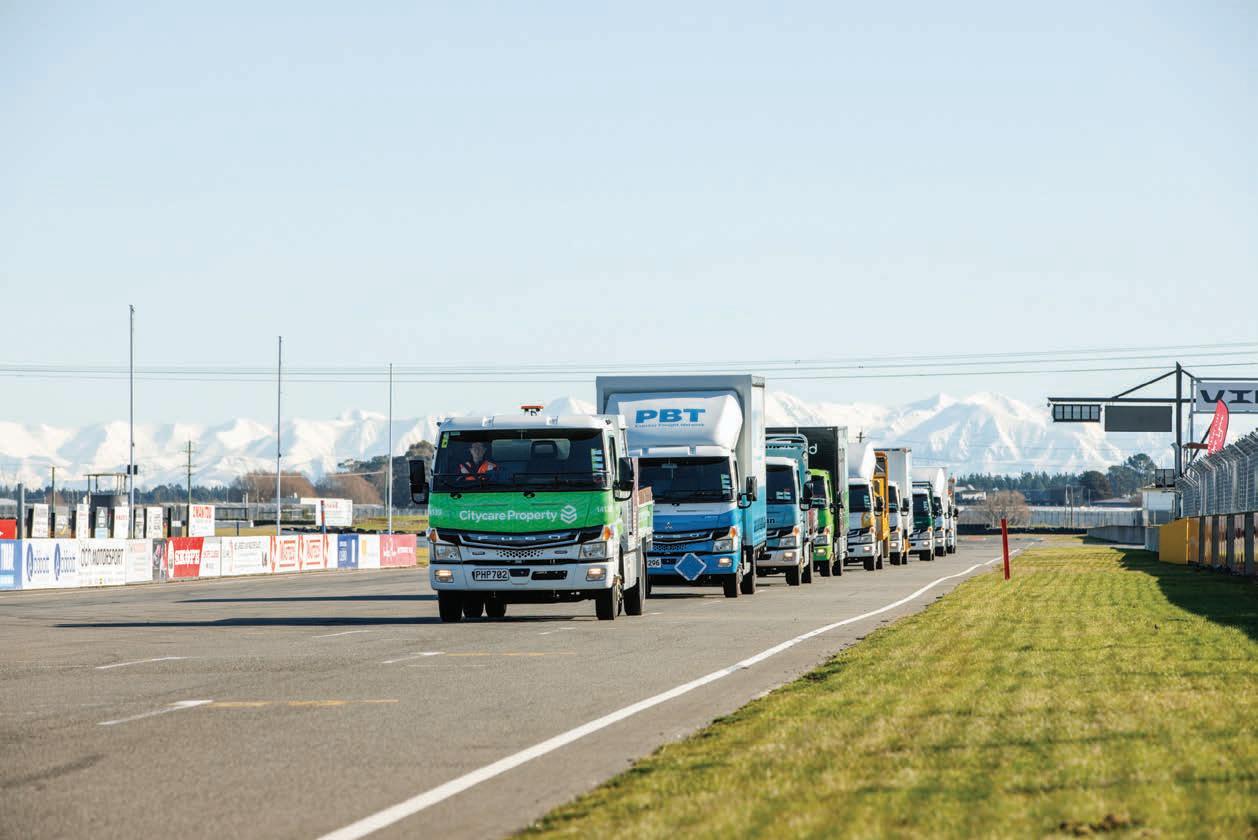
mills-tui.co.nz
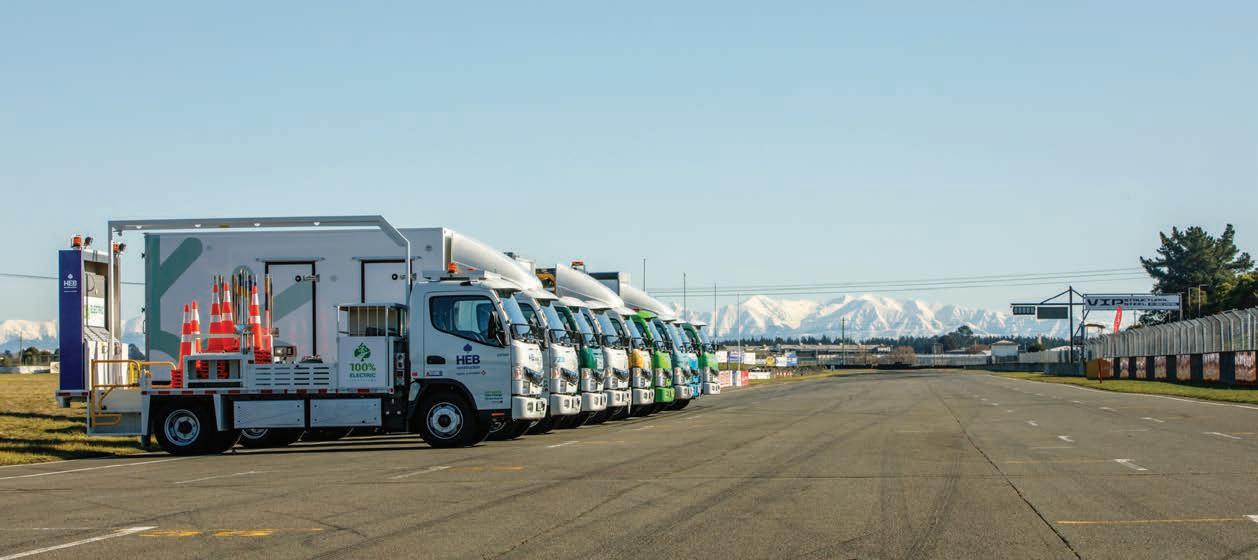
projects aim to show what’s possible with the electrification of commercial trucks. With transport making up a high proportion of our district’s emissions, it’s critical that we find a path towards zero exhaust emission trucks, in addition to batteryelectric passenger cars.
“I see the Council’s role as being that of the facilitator for projects like this, bringing willing businesses together. Both projects are great examples of the Council and businesses working on a common objective to reduce greenhouse gas emissions. The firms involved are early adopters, and are paving the way for both themselves, and the wider transport sector, in learning more about battery-electric truck technology. It is a delight to work with them.”
More than $3 million is being invested in the two projects, with funding coming from the nine companies leasing the trucks, the Low Emission Transport fund (administered by the Energy Efficiency and Conservation Authority) and from EROAD.
Mercury NZ is also supplying some funding towards on-route truck charging infrastructure as part of the shopping district delivery services project. T&D
mills-tui.co.nz
mills-tui.co.nz
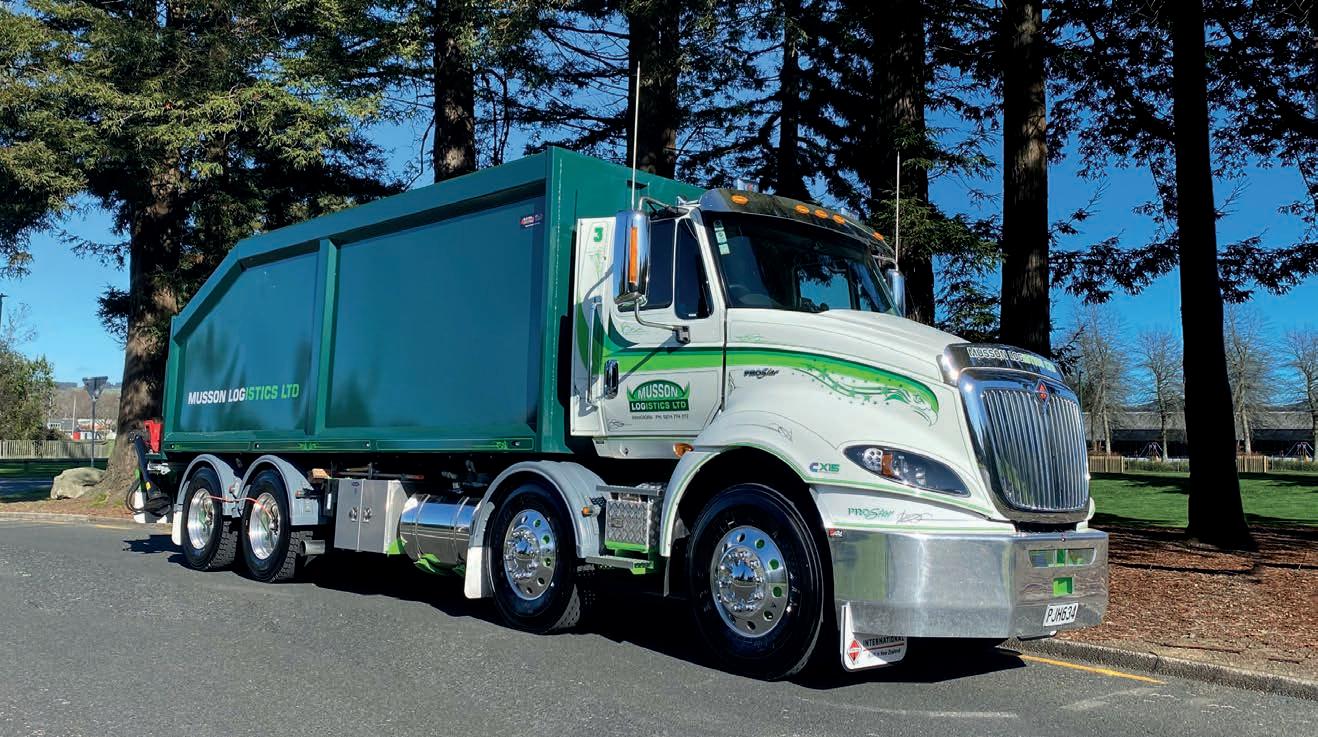
Mills-Tui Billet bin self loader – Customer: Musson Logistics Ltd
COVID AIN'T STOPPING US!! KEEP ON TRUCKING
Mills-Tui Limited
16–38 Pururu Street, Managakakahi Mills-Tui Limited , Rotorua 3015 16–38 Pururu Street, Managakakahi, Rotorua 3015 P P 07 348 8039 T 0800 MILLS -TUI (645 578)07 348 8039 T 0800 MILLS -TUI (645 578)
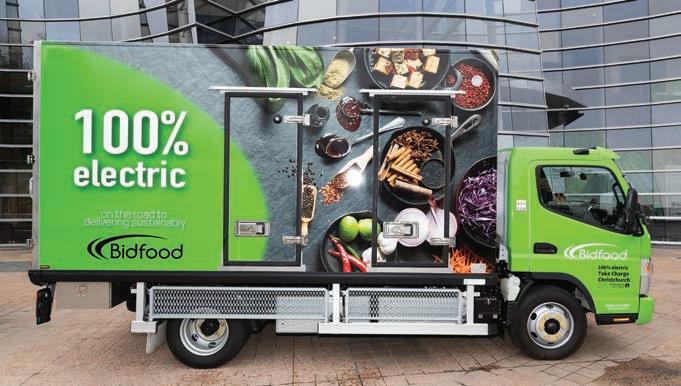
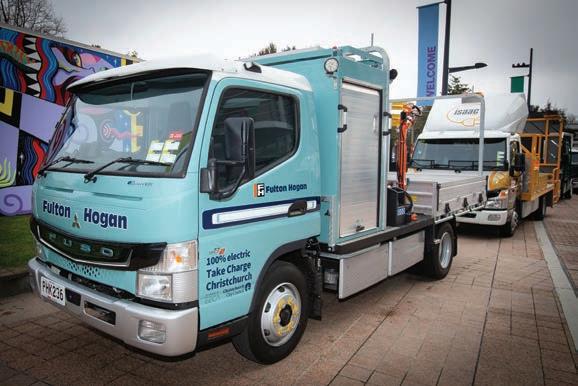
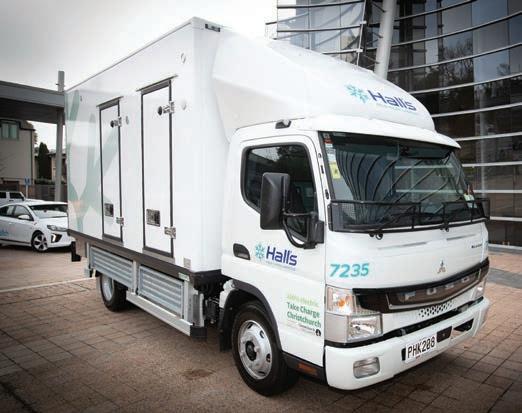
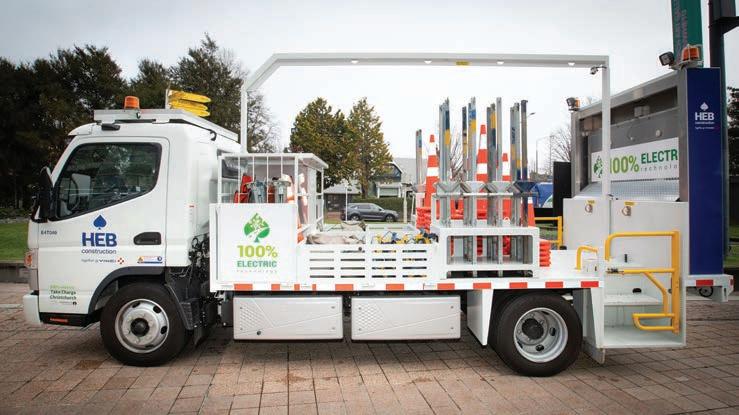
Clockwise, Halls Cold Chain Logistics, HEB Construction, Fulton Hogan and Bidfood are among the nine companies in the Christchurch EV trial Photos: Christchurch City Council
THE ALTERNATIVE INDEPENDENT NATIONWIDE 24/7 TYRE SERVICE
